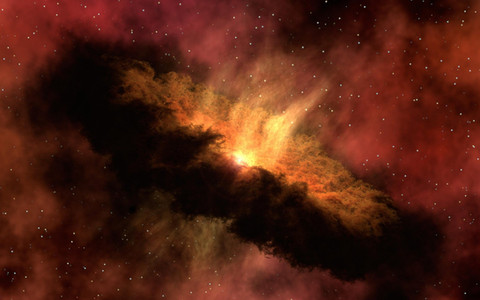Do you believe in star signs?
- Bolaji Akinola-Alli
- Nov 16, 2022
- 5 min read
Updated: Dec 14, 2022
Well I don't but I believe there is a lot we can learn from Stars.
I mean the three wise men used it to find Jesus, according to the Bible. So maybe they are indeed special.
So the question is why are stars special and what we learn from them?
Before we get into that I wanted to clarify a few things so I don't get a few angry dms (direct messages):
No, I am not an astrologer, astronomer or any of the 'astros'. Quite frankly my knowledge of astrophysics stops at A-level physics.
For anyone who cares, I have been told that I am a Taurus. *see last question in the post for context.
Finally, of course I compiled a list of fun facts about stars which I thought was cool.
Fun facts about Stars
#1 Every star you see is bigger than our sun
So when we see stars in the night sky and they look tiny, we should remember that although the sun shines the brightest, it isn't the biggest star.
This point resonates with me in the corporate workplace. Quite often, extroverts are seen as more intelligent and better contributors to team projects. I mean it makes sense when you consider output and not outcome. But because a person appears to constantly be beaming does not necessarily mean that they are better than those whose light don't seem as bright.
Susan Cain wrote a book called Quiet, where she explained that:
"some of the world's most talented people are introverts - without them we wouldn't have the Apple computer, the theory of relativity and Van Gogh's sunflowers. In Quiet, Susan Cain shows how society misunderstands and undervalues introverts while giving them the tools to better understand themselves and take full advantage of their strengths" [1]
It is also worth noting that the introvert/extrovert balance is more of a spectrum and than a binary logic. In other words, everyone has a bit of both an introvert and extrovert side to them, even though one is often more pronounced.
So if you are termed an introvert, do not underestimate the power of your introvert nature.
As my mentor would say:
Introverts are thinkers!I also just realised that there might be a few people reading this who did not know that the sun was a star - oops, spoiler alert!
#2 Stars are 'blue' hot!
This was strange for me to write down. I mean frozen objects appear blue and hot objects appear red, right?

But you see looks can be deceiving. Heated objects emit light when their temperatures increase and red is actually the coolest. So it goes from red to white, and then to blue as the temperature increases. So this is why stars appear blue.
What can we learn from this? Our friends, family or coworkers might be going through a tough period in their personal lives, but may seem like they have everything figured out.
There are many stories of this on mental health. Although we still have a long way to go as a society, I am glad that we are talking about it more. So let's remember to be kind, ALWAYS.
I tend to ask my friends this simple question and just listen to them:
How are you really doing? Are you happy?#3 Stars don't Twinkle
Feels like a scam doesn't it? All those years of singing 'twinkle twinkle little star', just to find out nothing was twinkling.
The technical term for when stars twinkle is called astronomical scintillation [2]. But that wouldn't make for a good nursery rhythm.
Stars appear to twinkle because their light rays are diffracted (bounced around), as they travel through the blanket of air around our planet. This is what causes it to appear like its dimming and brightening [2].
This reminds me of talent. Have you ever done something that feels somewhat natural to you but extraordinary to someone else?
You simply let your light shine, but it appears to sparkle to others.
At the risk of me repeating myself, please check out my piece on talent called: This Little light of mine
Nations will be drawn to your light, And kings to the dawning of your new day.
Isaiah 60:3#4 Black holes don't suck
When massive stars die, they form black holes. Now a common myth about black holes is that they suck in everything and destroy them. Kind of like vacuum cleaners, consuming everything that dares approach their vicinity.
This Forbes article does justice to explaining blackholes a bit better:
'The fact of the matter is that black holes aren't sucking anything in; there's no force that a black hole exerts that a normal object (like a moon, planet, or star) doesn't exert. In the end, it's all just gravity. The biggest difference is that black holes are denser than most objects, occupying a much smaller volume of space, and capable of being far more massive than any other single object.' [4]
And when things get pulled in,
'the vast majority of infalling matter finds itself spewed back out into the outer regions of the galaxy. It's estimated that, contrary to the popular picture, upwards of 90% of infalling matter will never make it inside a black hole at all.' [4]
This tells me to take the leap and chase my dreams!
From imposter syndrome to the fear of failure, there is always an excuse to not go ahead with a great opportunity that aligns with your passion. We won't have all the answers at the start and maybe that's a good thing. It would be like walking into a black hole but as we have learnt, they don't suck.
And what's the worse that could happen, you learn a lot from the experience, about yourself, the people around you and the industry you're operating in.
Do not let other people project their fears on you.
Here's an interesting quote by Erin Hanson:
"What if I fall?" Oh but my darling, What if you fly?”
- Erin Hanson#5 A constellation of stars
So if we are all stars encouraged to let our light shine, what would we look like together?
You guessed right - a constellation
A constellation is simply a group of stars.
Stephen R Covey wrote a book called The 7 Habits of Highly Effective People and it describes the difference between dependence, independence and interdependence.
It explains that as human beings we grow from a dependent life of being children, relying on our parents to an independent life later on. However the true value is residing in the interdependence phase of life.
"Human life is interdependent! We can combine our talents and abilities and create something greater together. Interdependent people combine their own efforts with the efforts of others to achieve their greatest success. [5]"
To be the best at what we do and create a better world than we found it, we need to work with other stars!
The magic happens between the stars!






Comments